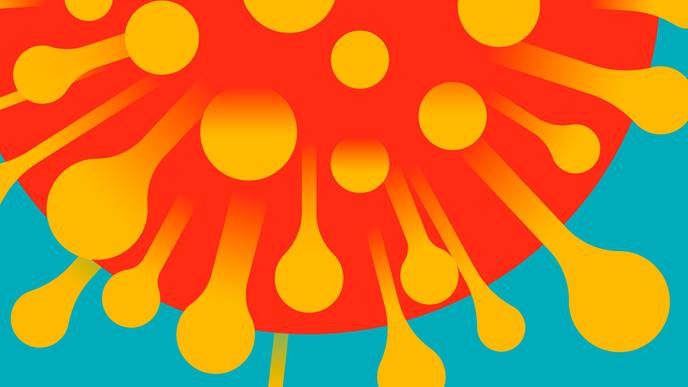Maltese Research Could Unlock a Mystery Surrounding Long-COVID

08/18/2023
University of Malta researchers have discovered a potential cause of the persistent, and often debilitating, symptoms experienced by long-COVID patients.
International research shows that nearly a third of people who recover from COVID-19 are plagued by health symptoms, such as lingering fatigue, breathlessness, difficulty with concentrating – also known as ‘brain fog’ – and muscle weakness.
Research in Malta has shown that by 2021, at least a quarter of people who contracted COVID-19 suffered from symptoms four to five months later.
Times of Malta had published preliminary data collected by the Department of Cardiology, in collaboration with the departments of Medicine and Pathology at Mater Dei Hospital that found about 22 per cent of former patients felt worse since they contracted the virus.
As the world struggled with the onset of the pandemic in 2020 and 2021, Malta was praised for its vaccination rollout and effort at curbing the spread of the virus.
Three years since the first case was recorded, Malta’s efforts are once again being recognised internationally with the publication of findings that could help with the development of medication to treat long-COVID symptoms.
Although long COVID is increasingly becoming a significant global burden affecting everyday functioning, its cause has been elusive, Prof. Ruben Cauchi, head of the Motor Neuron Disease Laboratory, told Times of Malta.
When three years ago, the government launched funds for laboratories to shift their focus to COVID-19, post-doctoral researcher Dr Paul Herrera, under the guidance of Cauchi, looked into what could cause long-COVID symptoms.
At the lab, researchers were already creating and genetically modifying fruit flies to understand motor neuron diseases such as ALS and MS. The DNA sequence of fruit flies overlaps with that of human beings by 75 per cent.
“The virus SARS-CoV-2 latches onto a protein in our body called ACE2, to enter into cells and infect them. However, once the virus is no longer in the body, some people still experience debilitating symptoms. We wondered whether this was because the ACE2 had been weakened,” Cauchi explained.
“So, we weakened, or as we say in scientific terms, ‘switched off’ this ACE2, and noticed symptoms of long-COVID in fruit flies. There was a breakdown in communication between nerves and muscles. Several key molecules required for nerves to send messages to muscles were found compromised. The fruit flies were easily fatigued during exercise and suffered muscle weakness, among others. Our research clearly shows that the weakening of ACE2 is central to the neuromuscular complications experienced by a significant percentage of COVID-19 patients,” Cauchi added.
Herrera meanwhile noted that further research could show whether ACE2 is weakened when the COVID-19 virus hijacks it or is made weaker by the antibodies against ACE2 produced to fight the virus.
The research by Herrera and Cauchi – Functional characterisation of the ACE2 orthologues in Drosophila provides insights into the neuromuscular complications of COVID-19 – was published in the scientific journal BBA Molecular Biology of Disease.
It was funded by the Malta Council for Science and Technology COVID-19 Research and Development Fund.

Facebook Comments